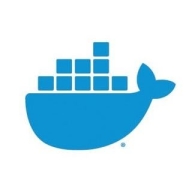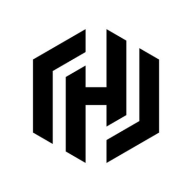

HashiCorp Nomad and Docker compete in container orchestration. Docker has an edge in feature richness and ecosystem support, making it preferable for organizations valuing extensive integrations. Nomad offers competitive pricing and scalability, appealing to enterprises focusing on cost optimization.
Features: Docker is renowned for its comprehensive containerization capabilities, extended ecosystem support, and wide range of integrations. It offers development tools that provide a broad feature set. HashiCorp Nomad is recognized for its lightweight framework, the ability to orchestrate both containerized and non-containerized applications, and native multi-datacenter support.
Ease of Deployment and Customer Service: Docker's deployment model is known for simplicity, enabling rapid setup in diverse environments. Its community support is extensive, offering a wealth of resources. HashiCorp Nomad, while slightly more complex to deploy, provides robust scalability and versatility for orchestrating diverse workloads. It offers specialized support channels tailored for enterprise deployments.
Pricing and ROI: HashiCorp Nomad features a more attractive pricing structure due to lower setup costs and efficient resource management, offering higher potential ROI for scalable solutions. Docker, although having potentially higher setup costs, justifies its expense with an extensive feature set and comprehensive support infrastructure, contributing to a potential long-term ROI for businesses investing widely in containerization.
| Product | Market Share (%) |
|---|---|
| Docker | 4.5% |
| HashiCorp Nomad | 3.5% |
| Other | 92.0% |


| Company Size | Count |
|---|---|
| Small Business | 22 |
| Midsize Enterprise | 4 |
| Large Enterprise | 34 |
Docker is a versatile container platform used for running and deploying applications in isolated environments, ensuring consistency across development, testing, and production.
Docker offers solutions for containerizing applications, automating deployments, and managing infrastructure through its robust platform. It supports CI/CD workflows, provides a development platform for container management, and simplifies the setup by using streamlined tools. Organizations leverage Docker for building microservices, running UI applications, deploying web services, and setting up secure environments. It also facilitates managing containers via Kubernetes and creating development stacks for enhanced productivity.
What are Docker's key features?Industries implement Docker for CI/CD pipelines, scaling services, and improving resource utilization. Tech companies use Docker for building and deploying their software in isolated environments. Finance and healthcare sectors deploy applications securely, ensuring compliance with regulatory standards. Educational institutions set up consistent development environments for coding labs and training students in advanced technologies.
HashiCorp was founded by Mitchell Hashimoto and Armon Dadgar in 2012 with the goal of revolutionizing datacenter management: application development, delivery, and maintenance.
The datacenter of today is very different than the datacenter of yesterday, and we think the datacenter of tomorrow is just around the corner. We're writing software to take you all the way from yesterday to today, and then safely to tomorrow and beyond.
Physical, virtual, containers. Private cloud, public cloud, hybrid cloud. IaaS, PaaS, SaaS. Windows, Linux, Mac. These are just some of the choices faced when architecting a datacenter of today. And the choice is not one or the other; instead, it is often a combination of many of these.
HashiCorp builds tools to ease these decisions by presenting solutions that span the gaps. Our tools manage both physical machines and virtual machines, Windows, and Linux, SaaS and IaaS, etc. And we're committed to supporting next-generation technologies, as well.
HashiCorp was founded and continues to be run by the primary authors of all our core technologies powering thousands of companies worldwide. We speak at conferences and write books related to application and infrastructure management.
All our foundational technologies are open source and developed openly, and have been since 2010.
The Tao of HashiCorp is the foundation that guides our vision, roadmap, and product design. As you evaluate using or contributing to HashiCorp's products, it may be valuable to understand the motivations and intentions for our work.
We monitor all Container Management reviews to prevent fraudulent reviews and keep review quality high. We do not post reviews by company employees or direct competitors. We validate each review for authenticity via cross-reference with LinkedIn, and personal follow-up with the reviewer when necessary.